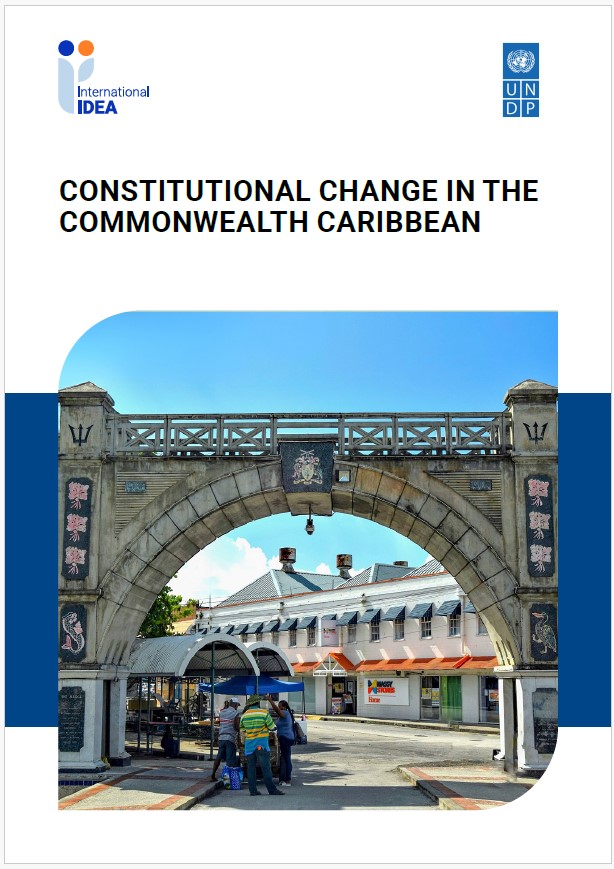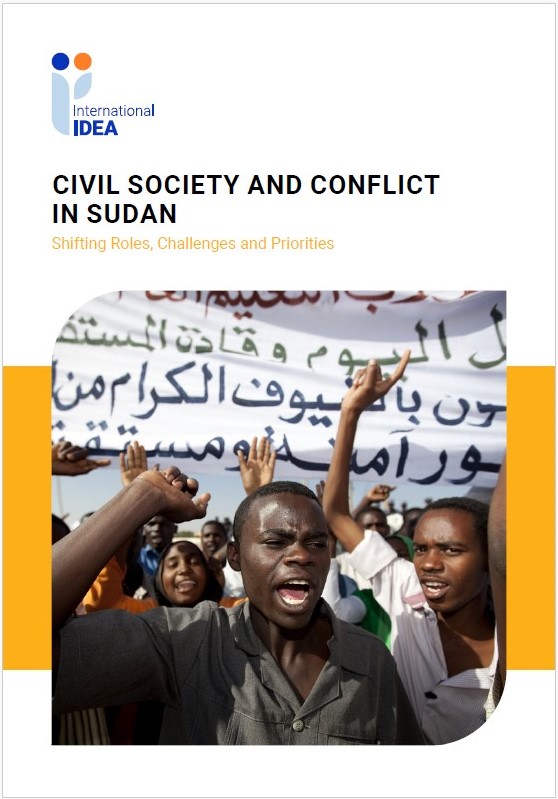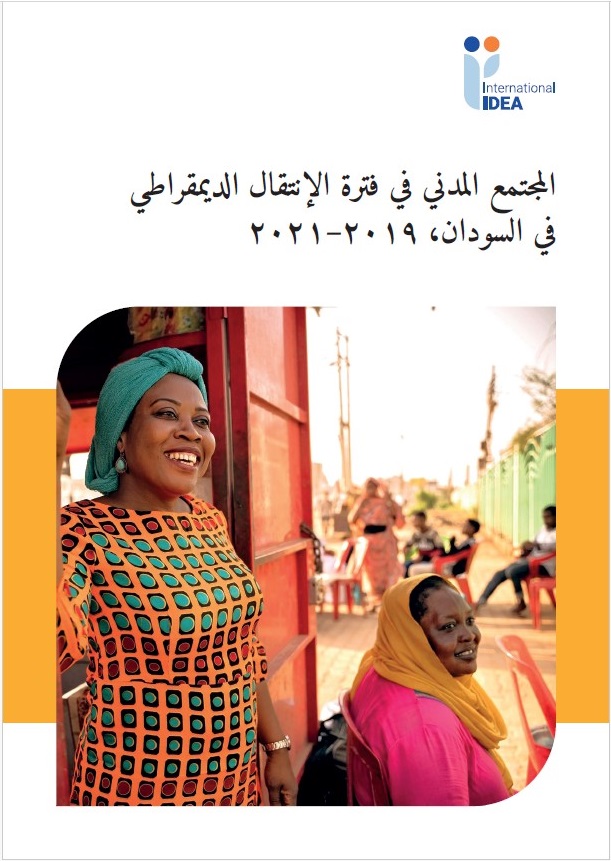Political parties in Zambia take on the challenge to go beyond promises and institutionalise gender equality. Following a roundtable discussion, organised by International IDEA and the Foundation for Democratic Processes of Zambia, the five main parties in the National Assembly have signed an official communique, showing their commitment achieve greater gender equality in Zambian politics.
Search
Region
Country
Type
Despite the existence of laws, affirmative action initiatives and political party reforms, the participation and representation of women in politics remains underdeveloped.
A multitude of factors impede women’s participation on an equal basis with their male counterparts. One such factor is access to the financial resources needed to effectively participate in electoral processes as candidates.
A crucial election will take place in Mexico this Sunday where a large number of seats on both federal and local level are up for renewal. In addition this election is the first test for the new electoral model, reformed in 2014, and could significantly change the political landscape ahead of the 2018 presidential election. This complex election also comes with a host of issues.
El próximo domingo 7 de junio tendrá lugar una crucial jornada electoral en México, ya que se renovará un alto número de cargos de representación y se redibujará el mapa político rumbo a las elecciones presidenciales de 2018; asimismo, se pondrá a prueba el nuevo modelo electoral reformado en 2014. Todo ello en un contexto cargado de diversos riesgos.
Join us on 4 June 2015 from 1100-1230 at International IDEA headquarters to discuss the quality of democracy in Europe with 9 Members of Club de Madrid.
Participate in the debate and engage with these former heads of government and state. Register no later than 1700 on Tuesday, 2 June by email to events@idea.int.
On 13 May, the National Election Commission of Korea hosted the 1stSeoul International Forum on Elections where Andrew Ellis, Interim International IDEA Director for Asia and the Pacific, made a presentation on ‘Making International Aid to Elections Effective’. Andrew talked about aid and democracy, describing its early approach in the 1990s as technocratic.
In September 2014 International IDEA and the Electoral Integrity Project (EIP; Harvard University & University of Sydney), the two sponsors, invited submissions for the second electoral integrity graduate student essay competition. The International IDEA/EIP Award is presented to the author of the best graduate student paper submitted for consideration on the theme of strategic interventions to strengthen electoral integrity.
The Tenth World Economic Forum on Latin America, held this year in the Mayan Riviera from 7 – 8 May, was an excellent opportunity to take the pulse of the situation in Latin America and to identify the main trends in the region.
This is the 2nd article in a series, where International IDEA illustrates how the Electoral Risk Management Tool is piloted and tested, by four separate organizations, in four different parts of the world.
La X edición del Foro Económico Mundial/Latam (FEM), celebrada este año en la paradisiaca Riviera Maya, 7 y 8 de mayo, fue como de costumbre una excelente oportunidad para tomarle el pulso a la coyuntura de América Latina e identificar las principales tendencias presentes en la región.
An article was published in Dagens Nyheter (DN) on the 17th of May. International IDEA’s response on the matters raised in the article is as follows:
1. Consultants and contractors
The principal assertion relates to a contractor taken on to manage the publishing process of the Lessons Learned Project that was started in 2011 at the initiative of the previous Secretary-General.
On 17 May 1990, the World Health Organization decided to remove homosexuality from its official list of mental disorders. The commemoration of this day represents an annual landmark to raise awareness on the specific issues faced by Lesbian, Gay, Bisexual, Transgender and Intersex (LGBTI) people.
The agenda-setting process for the post-2015 framework was characterized by an unprecedented global conversation involving a wide range of state and non-state actors.
The intergovernmental negotiations culminated in the adoption in September 2015 of a new and ambitious development agenda, outlined in the Sustainable Development Goals (SDGs).
On 10 March, Chilean President Michelle Bachelet established the Presidential Advisory Council against conflicts of interest, influence peddling and corruption, in response to her commitment to take institutional measures to regulate the relationships between money and politics, in both the public and private sectors.
On announcing the establishment of the Council, President Bachelet, stated:
El 10 de marzo pasado, la Presidenta de Chile, Michelle Bachelet, creó el Consejo Asesor Presidencial contra los conflictos de interés, tráfico de influencias y corrupción (CAP), respondiendo a su compromiso de tomar medidas institucionales que regulen las relaciones entre el dinero y la política, tanto en el ámbito público como en el de los negocios.
Al anunciar la creación del CAP, la presidenta Bachelet afirmó:
International IDEA´s Secretary-General, Mr Yves Leterme, went on a working mission to Chile from April 13 to April 15. The Secretary-General was accompanied by International IDEA´s Regional Director for Latin America and the Caribbean (LAC), Mr Daniel Zovatto. Chile is one of the founding members of the Institute and has been a strong advocate for more and better democracy the past two decades, not only in its country and region, but also worldwide.
Between 6 and 9 April the results of the Second Survey on Constitutional Culture in Argentina were presented in the cities of Buenos Aires and Cordoba. The survey was performed by International IDEA and Poliarquía Consultores in seven Argentine cities from November through December 2014.
Entre el 6 y 9 de abril se presentaron los resultados de la Segunda Encuesta de Cultura Constitucional en Argentina, en las ciudades de Buenos Aires y Córdoba. El estudio fue realizado por IDEA Internacional y Poliarquía Consultores en siete ciudades argentinas entre noviembre y diciembre de 2014.
STOCKHOLM – NEW YORK - The inclusion of proposed Sustainable Development Goal (SDG) 16 – Promote peaceful and inclusive societies for sustainable development, provide access to justice for all and build effective, accountable and inclusive institutions at all levels – provides a landmark opportunity to integrate peace and security into international development work.
Federalism is a constitutional mechanism for dividing power between different levels of government, such that federated units can enjoy substantial, constitutionally guaranteed autonomy over certain policy areas while sharing power in accordance with agreed rules over other policy areas. Thus, federalism combines partial self-government with partial shared government.


